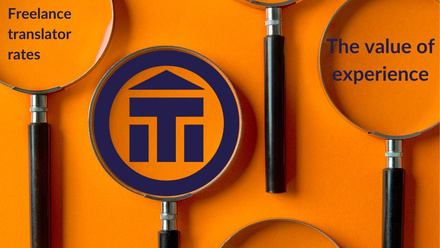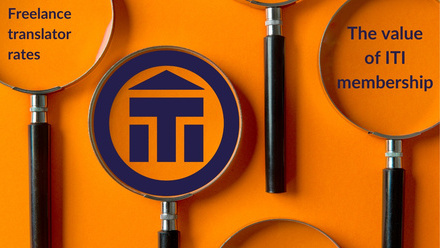Improving translators' working lives: your voice matters
Akiko Sakamoto introduces the Translator Work-related Quality of Life research project and asks ITI members to get involved.
The world of work has been changing rapidly. Among the many drivers behind this trend, the rapid technologisation of work as well as the continuous push for higher productivity and cost-efficiency are probably the most common elements. And the world of translation is no exception. Therefore, as a professional translator staying motivated to work and feeling happy in that work is ever-more important for our professional well-being.
So, are you happy working as a translator? Do you want to stay in the profession for the long term? I am a long-standing ITI member and also an academic who researches on translators’ well-being. In order to find answers to these questions, we, the Translator Work-related Quality of Life (T-WRQoL) research group*, are running a T-WRQoL survey with ITI this summer.
The economic and social environments surrounding translators are changing dramatically. It is vital to find out what factors are influencing translators’ working lives -both positively and negatively. These factors may include the recent advancements of AI/machine translation, changes in pay structures or people’s perceptions about the social status of the translation profession. They may also include factors that are closely related to our working lives in general, such as work-life balance or general health conditions.
In 2023, we conducted two pilot studies for this research. If you took part in either of these, thank you very much; your participation has enabled us now to create our main survey.
The results of the pilot studies indicated some intriguing but somewhat puzzling facts. Here are some results from the second pilot study, which was carried out in October 2023 and to which 341 people responded. Caution is due as these results are only from a pilot study, therefore they are not considered as official results, but some interesting aspects can be observed here.
91% of respondents answered positively (i.e., either choosing the ‘Strongly agree’ or ‘Agree’ option) to the statement “I enjoy my work”. 80% also responded positively to the statement “I am proud to tell others that I am a translator”. However, 77% of respondents agreed or strongly agreed to the statement “I feel I should be paid more for the translation work I do” and only 20% showed a positive response to the statement “I would recommend the translation industry as a good industry to work in”.
These results are clearly paradoxical: translators feel their working conditions are not satisfactory and the career in translation is not worth pursuing. Yet, they enjoy their work and are happy and proud to be a translator.
In order to explain this paradox, we have to unpack the complex realities of the translation profession. As I mentioned at the beginning of this blog, in this modern world of work, there are many factors that are affecting translators. These may include technology use in translation, working conditions, work-life balance, what kind of clients they work for, or simply what kind of translators they are. However, we do not know the exact answers yet.
So please help us solve the puzzle by taking part in the T-WRQoL survey this summer. All ITI members will receive an invitation email from ITI in mid-August to take part in the online survey which will remain open until 13 September 2024. The survey takes 10-15 minutes to complete, and you are welcome to take part even if you took part in one of the pilot studies in 2023.
To understand the complex realities of the translation profession, we need substantial data from working translators. The information gained from the data will allow us to provide well-founded recommendations to relevant industry stakeholders, including LSPs for which the ITI members regularly work. We believe this can be a path for us to shape our own professional future.
*The T-WRQoL research group consists of researchers from Translation Studies and Organisational Psychology from Kansai University, Japan; University of Surrey and University of Portsmouth, UK; and Dublin City University, Ireland. More details are available on the website.




